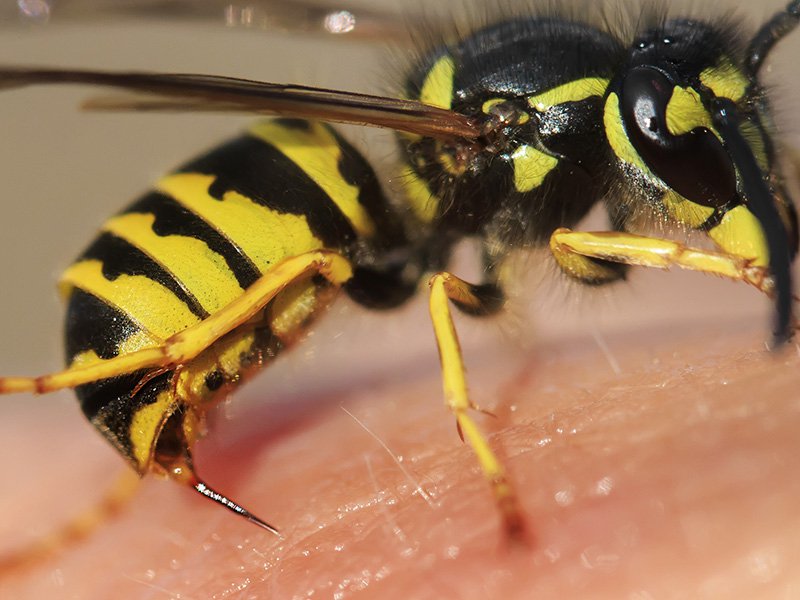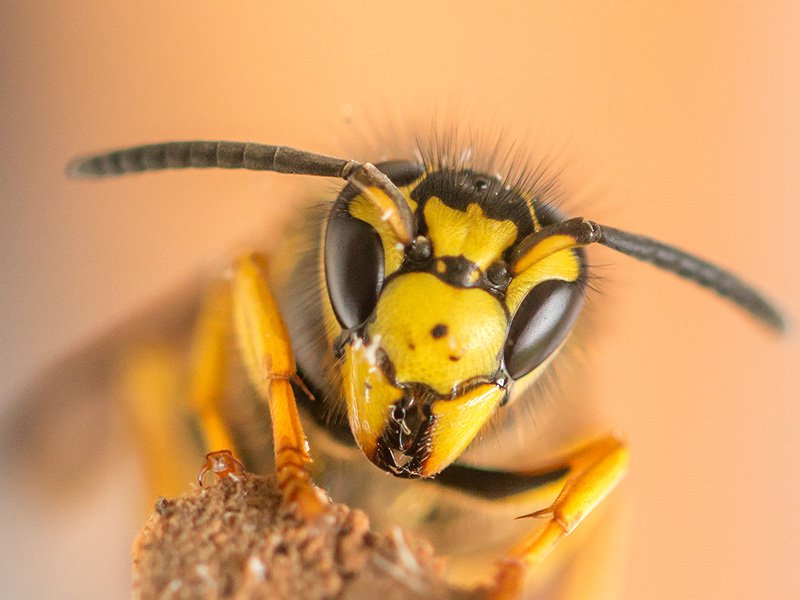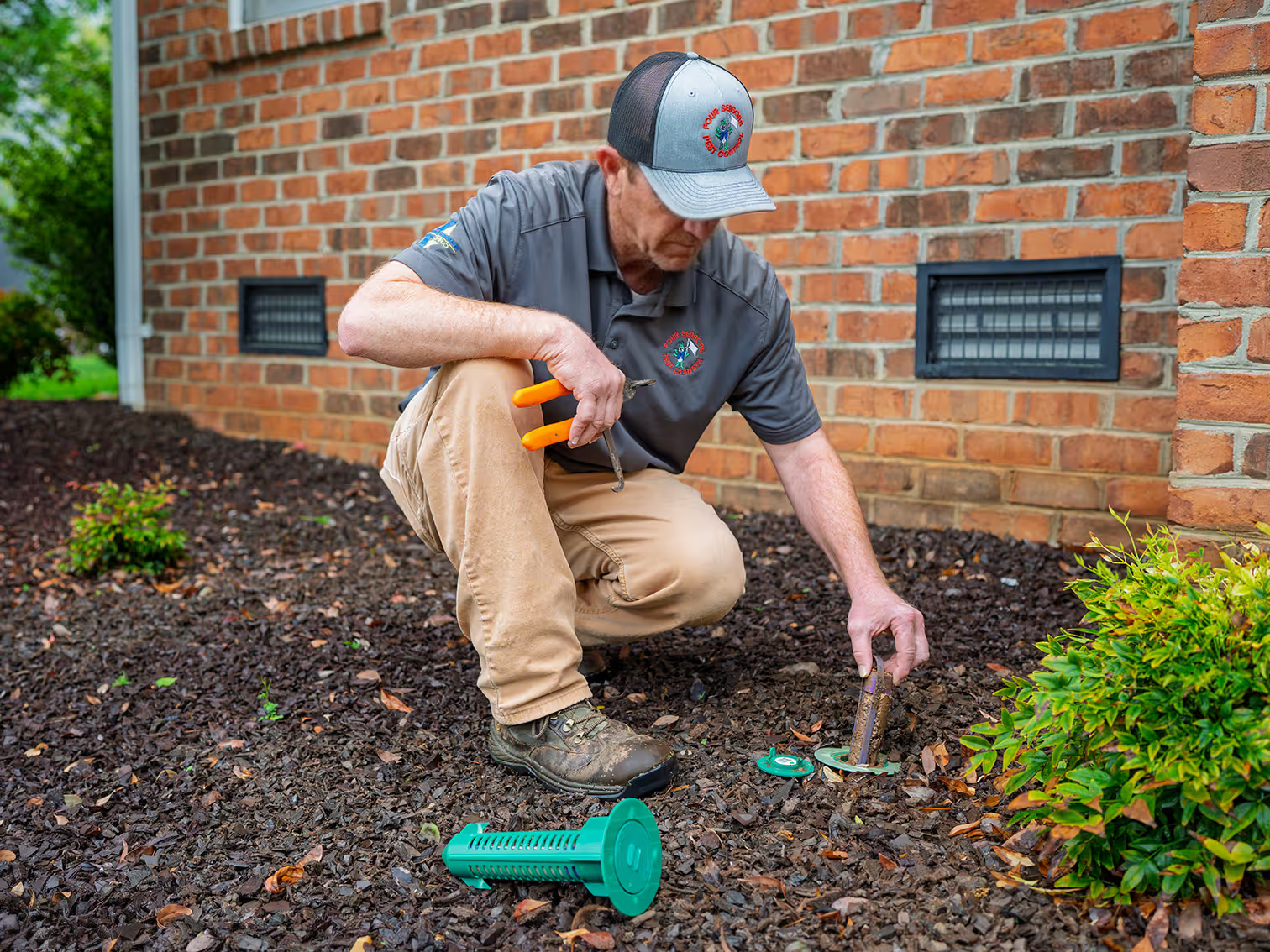Why Wasps Are More Aggressive in August
It’s natural for wasps to become more aggressive in August, and the reasons behind it have everything to do with their life cycle. Back in the spring, queen wasps emerge from their winter hiding places and begin building new colonies. They construct a nest and start laying eggs to build up the population.
As the season progresses, the first batch of wasps matures into workers that take over the responsibilities of nest expansion and caring for developing larvae. This allows the queen to shift her focus entirely to laying eggs while the workers do the heavy lifting.
Throughout most of the summer, these worker wasps are busy hunting protein-rich foods, like other insects, to feed the growing larvae. But the colony is fully developed by August, and the queen stops laying eggs. The remaining larvae are almost mature as well. Once the larvae are gone, the workers no longer have any young to feed. That shift changes everything.
With fewer responsibilities, aging workers become more restless and more focused on feeding themselves. They’re still territorial and protective of the nest, but now they’re also hungrier, with more free time to cause trouble. That’s why wasps seem bolder and more aggressive in late summer.
How Food Plays a Role in Wasp Aggression
Wasps always search for food, but their dietary needs change as the colony matures. During the spring and early summer, their main goal is to gather protein to feed the larvae. This includes hunting other insects or scavenging for meat and similar food sources.
But once their job of feeding larvae is over, their own nutritional needs take priority, and that’s when they develop a sugar craving. Unfortunately, this shift happens around the same time that natural sugar sources like nectar begin to decline.
With fewer flowers blooming and nectar harder to find, wasps are forced to look elsewhere. And where better to find something sweet than around humans enjoying cookouts, picnics, or drinks on the patio? Sodas, fruit, desserts, and even trash bins become wasp magnets.
Late summer is prime time for outdoor gatherings, and wasps don’t hesitate to crash the party. Their increased need for sugar, combined with dwindling natural sources, makes human activity a prime target and raises the odds of a stinging encounter.
How to Avoid Wasp Stings in Late Summer
If all wasps did was fly around and occasionally sneak a sip of soda, we could tolerate them. But since they can sting (and multiple times) and often do when they feel threatened, we recommend taking steps to avoid attracting them and reducing your chances of being stung.
Here are some simple ways to protect yourself and make your yard less appealing to foraging wasps:
- Cover food and drinks when eating outdoors
- Store trash in sealed containers and move bins away from gathering areas
- Clean up thoroughly after meals, including wiping down tables and picking up scraps
- Rinse out recyclables before placing them in the bin
- Avoid wearing scented products like perfume, lotion, or body spray outdoors
- Skip bright colors and floral prints, which can attract wasps
- Inspect your property regularly for nests, especially under eaves, decks, and in shrubs
- Avoid swatting at wasps, which can provoke them to sting
- Patch screen holes and seal cracks around your home to keep wasps from getting inside
These steps won’t eliminate all wasp activity, but they can significantly reduce the risk of stings and discourage wasps from hanging around your outdoor spaces.
When to Call Four Seasons Pest Control for Wasp Control
It’s one thing to see the occasional wasp, but if you’re noticing a lot of activity or if you’ve spotted a nest too close for comfort, it’s time to call in the pest control pros. Skip the DIY methods as they can be risky, especially when dealing with aggressive wasps.
Contact Four Seasons Pest Control if:
- You’re seeing frequent wasp activity around your home
- You’ve located a visible nest on your property
- You have children or pets who could be at risk
- You or someone in your household has a wasp allergy
- You’re hosting an outdoor event and want to keep it sting-free
Our team provides effective pest control for homes and businesses in our Virginia and North Carolina service areas. We’ll inspect your property, identify nesting sites, and carefully remove the problem so you can get back to enjoying your yard without worry. Plus, we provide ongoing pest treatments to ensure stinging insects and other pests don’t have the opportunity to re-infest!
Contact Four Seasons Pest Control today and take the sting out of late summer.


















